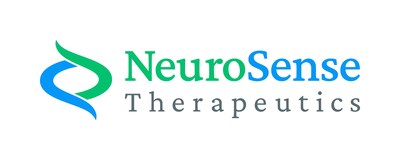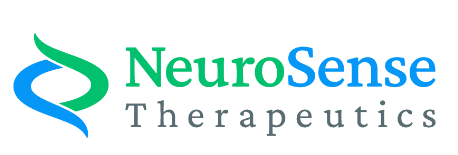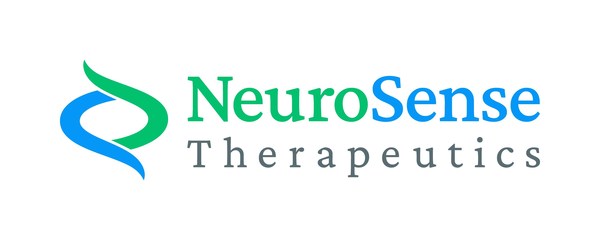- Top-Line Results from 6-month double-blind Phase 2b PARADIGM trial with NeuroSense's lead drug candidate for ALS, PrimeC, include:
- PrimeC achieved primary safety and tolerability endpoints with a safety and tolerability profile comparable to placebo
- Meaningful slowing of disease progression: 29% difference (P=0.12) in favor of ALSFRS-R outcome for patients treated with PrimeC vs placebo
- Slow Vital Capacity: observed a positive trend in favor of patients treated with PrimeC compared to placebo
- Neurofilament biomarker results from Biogen collaboration expected in January 2024
- Primary biomarker endpoints and exploratory biomarkers from this trial, expected in H1 2024
- Company to host webcast conference call to present data today at 8:30 AM EST
CAMBRIDGE, Mass., Dec. 5, 2023 /PRNewswire/ -- NeuroSense Therapeutics Ltd. (Nasdaq: NRSN) ("NeuroSense"), a company developing treatments for severe neurodegenerative diseases, today reported that it met its primary safety and tolerability endpoints and achieved secondary clinical efficacy endpoints in the top-line results of its randomized, placebo-controlled, double-blind segment the Company's Phase 2b amyotrophic lateral sclerosis ("ALS") trial of PrimeC ("PARADIGM"). The trial's secondary clinical efficacy outcome measure endpoints included Amyotrophic Lateral Sclerosis Functional Rating Scale-Revised ("ALSFRS-R") and Slow Vital Capacity ("SVC"), a measure of respiratory function. NeuroSense expects to report an additional primary biomarker endpoint of the assessment of ALS hallmarks, TDP-43 and Prostagladin2, to evaluate PrimeC's biological activity, in the first half of 2024 following the completion of the analysis of participants' plasma.

The PARADIGM (NCT05357950) trial is a prospective, multinational, randomized, double-blind, placebo-controlled Phase 2b clinical trial of PrimeC in ALS. Participants living with ALS in Canada, Italy, and Israel were enrolled and dosed for 6 months after being randomized 2:1 to receive PrimeC or placebo, respectively. After completion of the 6-month double-blind segment, the participants had the option to enroll in a 12-month open label extension (OLE), during which they all receive treatment with PrimeC.
Over the course of 6 months, patients treated with PrimeC experienced a slowing of disease progression, including preserved daily function. The clinical efficacy results showed a 29% difference in favor of PrimeC in ALSFRS-R (p=0.12) and a 13% difference in favor of PrimeC in SVC (p=0.5) based on data from 68 out of 69 patients, due to 1 misdiagnosed participant. These data include 45 patients randomized to the PrimeC arm and 23 patients randomized to the placebo arm, from the 6-month double-blind segment. The safety and tolerability profile of PrimeC was comparable to the placebo. Nearly all participants, 96%, who completed the 6-month double-blind portion of the trial chose to receive treatment with PrimeC through the 12-month open label extension. To date, all the participants who already completed the 18-month trial have opted to continue treatment of PrimeC by joining a subsequent investigator-initiated trial.
NeuroSense expects to report results from a strategic collaboration with Biogen in January 2024, evaluating the impact of PrimeC on neurofilament levels in participants enrolled in PARADIGM. Upon receipt of results, Biogen has the right of first refusal to co-develop/commercialize PrimeC for the treatment of ALS for a limited time following the results.
"The clinical advancement of a new therapy that helps slow down the progression of ALS, with the potential to preserve quality of life, has the capacity to significantly positively impact people living with ALS and their families. While the ALSFRS-R and SVC results are Phase 2 data and were not powered for statistical significance, the positive results support moving forward to a Phase 3 pivotal trial. The biomarker data will also be very informative, and I look forward to seeing those results in early 2024," stated Merit Cudkowicz, M.D., Chair of Neurology at Massachusetts General Hospital, the Director of the Healey & AMG Center for ALS, Julieanne Dorn Professor of Neurology at Harvard Medical School, and member of NeuroSense's Scientific Advisory Board. "I am excited by the top-line clinical data from PARADIGM, as this is an important milestone for the patients I care for and for the entire ALS community."
"The release of this portion of the top-line results of the PARADIGM trial marks an exciting milestone for NeuroSense as we take another step toward helping people suffering from this dire disease. We look forward to meeting with the FDA to determine the best path forward and to advancing discussions with strategic partners who share our vision for PrimeC to benefit people living with ALS," stated Alon Ben Noon, CEO of NeuroSense. "I would like to thank my devoted team and everyone who made this possible, the trial participants, their caregivers and families, as well as the sites' principal investigators and trial coordinators for their tremendous contribution to PARADIGM."
"In addition to the safety and tolerability profile observed, we believe the 29% difference observed in ALSFRS-R in favor of PrimeC as well as the 13% decline in SVC compared to the placebo arm, illustrate PrimeC's potential to render a meaningful clinical benefit to people living with ALS," stated Dr. Ferenc Tracik, NeuroSense's Chief Medical Officer. "With the trial powered to determine statistically significant changes in ALS biomarkers, we look forward to the additional primary endpoint data in the first half of 2024."
About ALS
Amyotrophic lateral sclerosis ("ALS") is an incurable neurodegenerative disease that causes complete paralysis and death within 2-5 years from diagnosis. Every year, more than 5,000 patients are diagnosed with ALS in the U.S. alone, with an annual disease burden of $1 billion. The number of patients with ALS is expected to grow by 24% by 2040 in the U.S. and EU.
About PrimeC
PrimeC, NeuroSense's lead drug candidate, is a novel extended-release oral formulation composed of a unique fixed-dose combination of two FDA-approved drugs: ciprofloxacin and celecoxib. PrimeC is designed to synergistically target several key mechanisms of ALS that contribute to motor neuron degeneration, inflammation, iron accumulation and impaired ribonucleic acid ("RNA") regulation to potentially inhibit the progression of ALS. NeuroSense completed a Phase 2a clinical trial which met its safety and efficacy endpoints including reducing functional and respiratory deterioration and statistically significant changes in ALS-related biological markers indicating PrimeC's biological activity. PrimeC was granted Orphan Drug Designation by the U.S. Food and Drug Administration and the European Medicines Agency.
About NeuroSense
NeuroSense Therapeutics, Ltd. is a clinical-stage biotechnology company focused on discovering and developing treatments for patients suffering from debilitating neurodegenerative diseases. NeuroSense believes that these diseases, which include amyotrophic lateral sclerosis (ALS), Alzheimer's disease and Parkinson's disease, among others, represent one of the most significant unmet medical needs of our time, with limited effective therapeutic options available for patients to date. Due to the complexity of neurodegenerative diseases and based on strong scientific research on a large panel of related biomarkers, NeuroSense's strategy is to develop combined therapies targeting multiple pathways associated with these diseases.
Forward-Looking Statements
This press release contains "forward-looking statements" that are subject to substantial risks and uncertainties. All statements, other than statements of historical fact, contained in this press release are forward-looking statements. Forward-looking statements contained in this press release may be identified by the use of words such as "anticipate," "believe," "contemplate," "could," "estimate," "expect," "intend," "seek," "may," "might," "plan," "potential," "predict," "project," "target," "aim," "should," "will" "would," or the negative of these words or other similar expressions, although not all forward-looking statements contain these words. Forward-looking statements are based on NeuroSense Therapeutics' current expectations and are subject to inherent uncertainties, risks and assumptions that are difficult to predict and include statements regarding PrimeC as a potential treatment for people with ALS, the timing for release of additional results from PARADIGM clinical trial, the timing for release of results from the Company's strategic collaboration with Biogen, the cash runway of the Company, the timing of a Phase 2 trial for Alzheimer's disease and patient enrollment regarding a Phase 3 pivotal ALS trial of PrimeC. Further, certain forward-looking statements are based on assumptions as to future events that may not prove to be accurate. The future events and trends may not occur and actual results could differ materially and adversely from those anticipated or implied in the forward looking statements. These risks include unexpected R&D costs or operating expenses, a delay in the reporting of additional results from PARADIGM clinical trial, a delay in the reporting of results from the Company's strategic collaboration with Biogen, the timing of expected regulatory and business milestones, risks associated with meeting with the FDA to determine the best path forward following the results from PARADIGM clinical trial, including a delay in any such meeting, a delay in patient enrollment for a Phase 2 trial for Alzheimer's disease or its planned Phase 3 pivotal ALS trial of PrimeC; the potential for PrimeC to safely and effectively target ALS; preclinical and clinical data for PrimeC; the uncertainty regarding outcomes and the timing of current and future clinical trials; timing for reporting data; the development and commercial potential of any product candidates of the company; and other risks and uncertainties set forth in NeuroSense's filings with the Securities and Exchange Commission (SEC). You should not rely on these statements as representing our views in the future. More information about the risks and uncertainties affecting the Company is contained under the heading "Risk Factors" in the Annual Report on Form 20-F filed with the Securities and Exchange Commission on March 22, 2023. Forward-looking statements contained in this announcement are made as of this date, and NeuroSense Therapeutics Ltd. undertakes no duty to update such information except as required under applicable law.
Logo: https://mma.prnewswire.com/media/1707291/NeuroSense_Therapeutics_Logo.jpg
SOURCE NeuroSense



